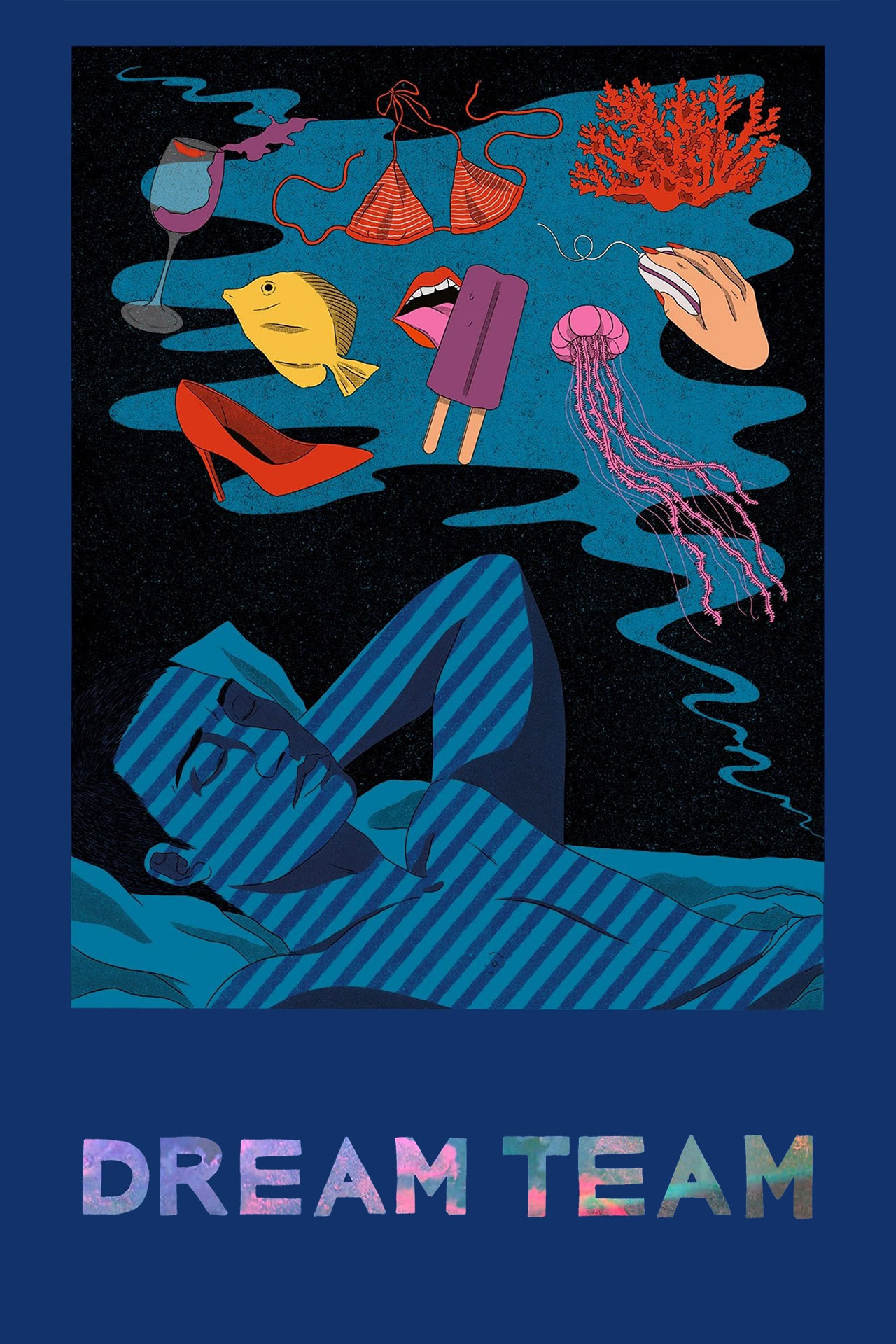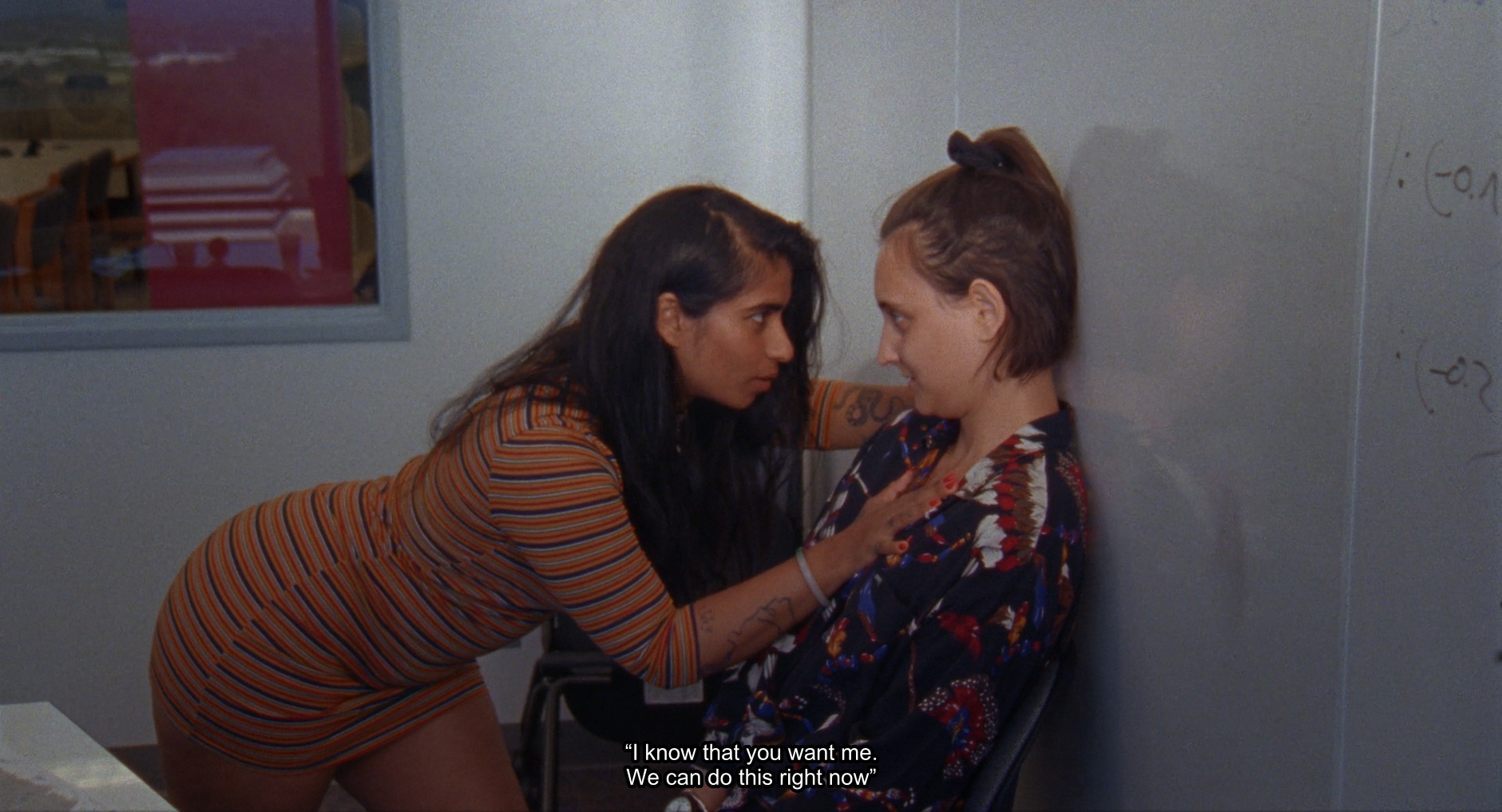
Dream Team is a 2024 comedy sci-fi miniseries/film, directed by Lev Kalman and Whitney Horn.
I watched Dream Team in two sittings: One at night after a day of weed, and one at the morning after. It’s difficult to describe the experience of it, partly because it is largely a patience-testing affair that rewards people who have more ironic or fringe comedic sensibilities like myself. I’m hesitant to call it “intentionally bad” because that phrase implies a neglect on the behalf of the crew to make it something that it shouldn’t be. It is, instead, a bizarre construction made specifically to communicate an aesthetic above an actual plot.
This type of ‘vibe movie’ is something I’ve yet to fully sink my teeth into, although I recognize that it is poignant as a style. One of my favorite films of the decade thus far is No Sleep Till, a movie that explores many perspectives and emotions around the American hurricane season. They’re also somewhat dissociative in their camerawork, lingering on shots for long periods and letting the viewer’s eyes wander. These films are as effective as they are precisely because their characters are scrappy in a very human way.
Dream Team is certainly in the same loop, but it uses the hypnotic nature of the format for comedy, and it is executed like a slacker comedy. The dialogue is disjointed both in its writing and delivery–the dialogue is written with an incredible pace, capturing interesting concepts in single-sentence bursts, and yet it’s acted as if it is casual conversation. It feels as though the plot itself is being told not through the actual words, but through the sometimes tenuous connections with other plot-points visually and conceptually.
Describing this movie’s plot shot-to-shot is difficult. The focus and the way it talks about its plot constantly changes and makes things extraordinarily difficult to parse for someone like me. The dream sequences (of which there are several) exist in this state where there are gestures to plot elements, but typically end up becoming a glamorizing montage of a particular fixation. This is not something you accidentally do unless you’re already predisposed to these kinds of quasi-psychedelic montages. It’s almost Brakhage-esque in how these scenes sorta just merge into each other through the advancement of time.
Some bizarreness exists within the diversions themselves. One sequence involves, and I am not joking, an improvisational dance in an empty gym intercut with a reggaeton music video. It lasts for about six minutes and is jarring compositionally, juxtaposing bright natural light with dark artificial light. There are sexual moments strewn about the film, collaged in a similar way to other plot diversions, or in the case of one scene, doing really stupid shit. Dr. Veronica Beef [sic] wears a fishnet top with a strapless bra while meeting two Interpol officers about her area of expertise, whose conversation inexplicably ends up in a hot-spring where all of them are huddled up against each other. It is a moment dripping in bisexual gaze, one that the movie continues to stoke throughout its first half.

An early scene in the film, where two office workers deliberate on how to seduce a male coworker (possibly Chase), and one demonstrates a very physical flirtation technique.
All of this is at odds with a very bizarre investigative sci-fi story. I would be remiss not to bring up an obvious point of the satire that Dream Team operates on: It is a parody of The X-Files and shows of that ilk, with its central entity being a malevolent coral that emits a gaseous substance that can kill people. The entire presentation is delivered in eleven minute ‘episodes’. It would be somewhat difficult to notice the actual beginnings and ends of each ‘episode’ and its respective plotline were it not for some extremely strange production choices that foreground the specific medium it’s parodying.
Every episode starts by putting new plot elements into the same musical number, which then reveals a title sequence before getting on with the show, as if it were a typical television show introduction. Episodes have individual names attached to them and are frequently broadcast at the end of the previous. Most alarmingly, the movie ends on a cliffhanger episode that is just barely relevant to the actual plot at hand. I don’t want to bother myself with the qualifications between “film” and “miniseries”, but its aesthetic feels closest in reality to a season of a forgotten series played back-to-back from a DVD.
A presentation this strange leaves me turning it over in my head and staring at it like a specimen. It is, obviously, the perfect stoner flick to put on in the background and giggle at, but there’s also a genuine interest from within the film to focus on a controlled chaos. It’s an effect that is as hypnotic as it is humorous. Dream Team is schlock insofar as it embodies nearly all the perceived cliches of its parodies, but it uses that quality and makes for a fascinating watch. It is also, perhaps by the nature of what it is, divisive–but people who can dig its artsy nonchalance on its own merits (such as myself) will like it.
This post was published on 30/09/25.